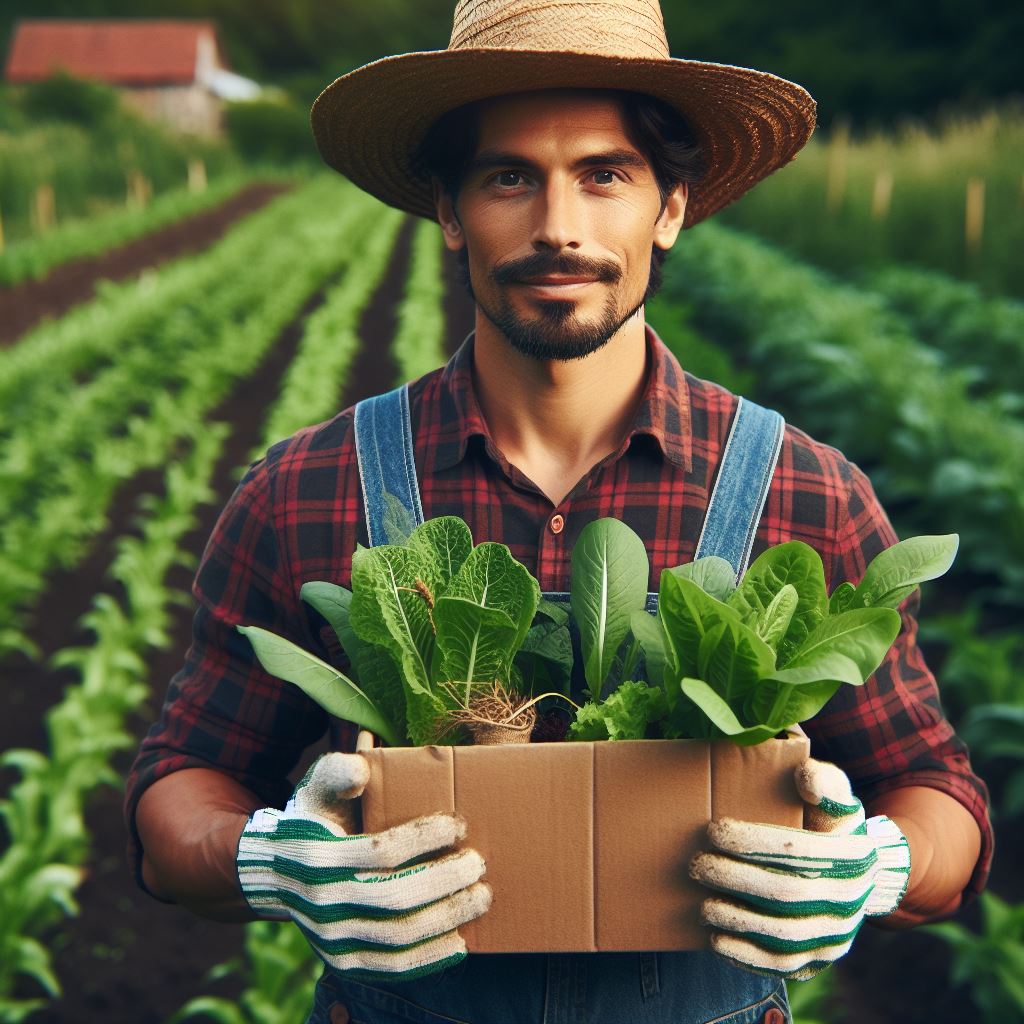Introduction
Soybean family field history, Soybeans play a vital role in the farming industry, serving as a versatile crop with diverse uses.
They contribute to food production, animal feed, biofuels, and various industrial applications.
Soybeans are valued for their high protein content and nutritional benefits, making them a staple in diets worldwide.
Additionally, soybeans enrich the soil by fixing nitrogen and promoting sustainable agriculture practices.
Today, we delve into the captivating journey of one family’s history intertwined with soybeans.
We explore how soybeans have shaped their lives, livelihoods, and legacy over generations.
From humble beginnings to modern-day practices, this family’s soybean saga offers insights into agricultural heritage.
Join us as we uncover the rich tapestry of their field history and celebrate the enduring legacy of soybeans.
Overview of the Family
Introduce the farming family and their background
The Smiths, a hardworking farming family from small-town America, have deep roots in agricultural practices.
Originally from Iowa, the Smiths have been involved in farming for generations, passing down their knowledge and expertise from father to son.
Long-standing relationship with soybeans
The Smith family’s connection to soybeans is deeply ingrained in their agricultural lineage, tracing back to their great-great-grandfather’s initial foray into soybean cultivation.
Through generations, soybeans have become not just a crop but a cherished tradition, symbolizing resilience, hard work, and a profound respect for the land.
With each passing year, the Smiths have honed their skills in soybean farming, evolving alongside advancements in agricultural technology and practices.
Their expertise spans every stage of soybean production, from selecting the optimal seeds to implementing sustainable harvesting techniques.
Their fields stand as a testament to their dedication, meticulously tended with care and precision.
Beyond financial considerations, soybeans hold a special place in the Smith family’s ethos.
They view their soybean fields as a legacy, entrusted to them by their ancestors and preserved for future generations.
This sense of stewardship drives their commitment to sustainable agriculture, as they strive to protect the soil, water, and ecosystems that sustain their livelihoods.
Moreover, the Smiths are passionate advocates for the nutritional benefits of soybeans, incorporating them into their own diet and sharing their knowledge with their community.
They believe in the power of soybeans not just as a source of income but as a source of health and vitality.
In essence, the Smiths’ relationship with soybeans encapsulates the timeless values of perseverance, stewardship, and community.
Their journey is a testament to the enduring legacy of family farming and the profound impact it can have on both individuals and the agricultural landscape as a whole.
Read: Fruits of Labor: A Citrus Grower Tale
The Evolution of Soybean Farming
The family’s initial experience with soybeans
- In the beginning, the family was skeptical about growing soybeans on their farm.
- They were unsure about the value and profitability of soybeans compared to other crops.
- However, they decided to give it a try and planted a small soybean field.
- Despite the initial doubts, the family was pleasantly surprised by the success of their soybean crop.
- The soybeans grew rapidly and yielded a high-quality harvest, exceeding their expectations.
- This positive experience encouraged the family to expand their soybean farming operations.
The changes and advancements in soybean farming techniques over the years
- Over time, the family adopted new techniques and technologies, enhancing their soybean farming practices.
- They mechanized operations, utilizing tractors and machinery to streamline processes.
- This increased production scale, saved time, and reduced labor.
- Precision agriculture methods, like GPS-guided planting, improved resource efficiency and boosted yields.
- Investment in advanced irrigation systems ensured optimal water distribution for soybean crops.
- Genetically modified soybean seeds, resistant to pests, reduced reliance on pesticides.
- Sustainable practices such as cover cropping and crop rotation improved soil health and prevented erosion.
- Continuous education kept the family updated on the latest soybean farming research and best practices.
- Data-driven decision-making, aided by software and analytics, optimized farming strategies.
- Sustainable certifications validate the family’s commitment to eco-friendly soybean farming, enhancing market value.
- Overall, the family’s journey reflects significant advancements in soybean farming, fostering success and sustainability.
By recounting the family’s initial experience with soybeans and detailing the changes and advancements in soybean farming techniques over the years, we can see how the family’s journey aligns with the broader evolution of the soybean farming industry.
The continuous pursuit of improvement and adaptation to new technologies has allowed the family to thrive in the ever-changing agricultural landscape.
Read: Tractor Tracks: Innovations in Farming

Challenges Faced by the Family
Various obstacles encountered by the family in their soybean farming journey
- Unpredictable weather patterns: The family faced challenges with extreme weather conditions such as droughts, heavy rains, and hailstorms, affecting their soybean crops.
- Pest infestation: They battled pests like aphids, spider mites, and soybean cyst nematodes that caused damage to their plants, leading to significant yield losses.
- Market fluctuations: The family struggled with unpredictable market prices for soybeans, making it challenging to plan and manage their farm’s profitability effectively.
- Lack of agricultural infrastructure: The absence of proper storage facilities and transportation options posed difficulties in storing and selling the harvested soybeans.
- Limited access to credit: Obtaining loans or credit for necessary farm inputs and equipment became a hurdle for the family, hindering their farming operations.
Overcame these challenges and adapted to new circumstances
- The family implemented crop rotation, alternating soybeans with other crops like corn or wheat, to combat pest infestation.
- They invested in irrigation systems, ensuring a steady water supply for their soybean fields.
- Establishing partnerships with agricultural cooperatives, they expanded market channels and negotiated better prices.
- Diversifying income sources, they explored beekeeping or livestock rearing alongside soybean farming.
- Embracing advanced farming technologies, they enhanced crop yield with precision agriculture tools and resistant soybean varieties.
- Taking advantage of government assistance programs, they accessed subsidies, training, and loans to improve operations.
- Improving storage and transportation, they minimized post-harvest losses and ensured timely delivery to buyers.
- Actively participating in farmer networks, they learned from experienced peers and stayed updated with latest practices.
- Prioritizing soil conservation, they implemented sustainable practices to prevent erosion and enhance soil structure.
- Through continuous learning and adaptation, they remained resilient and innovative in soybean farming.
By embracing innovation, networking, and adapting to new circumstances, the family successfully overcame the challenges they faced throughout their soybean farming journey.
Their determination and perseverance enabled them to build a thriving soybean business, ensuring a sustainable future for their family and their beloved field.
Read: Tilling Tales: A Family Farm History
See Related Content: From City to Farm: A Newcomer’s Story
Explore Further: Florida Citrus Grower Goes Green: A Tale
Transform Your Agribusiness
Unlock your farm's potential with expert advice tailored to your needs. Get actionable steps that drive real results.
Get StartedSuccesses and Achievements
The family’s notable achievements with soybean farming
- The Smith family has been recognized as one of the top soybean farmers in the region.
- They have consistently achieved high yields and quality crops, setting new standards in the industry.
- Their commitment to sustainable farming practices has gained them accolades for environmental stewardship.
- The family’s innovative approach to soybean cultivation has led to increased efficiency and profitability.
- They have successfully implemented advanced technology, such as precision farming techniques and genetic engineering.
- Their ability to adapt to changing market demands has allowed them to thrive even in challenging times.
- The Smiths have received numerous awards for their outstanding contributions to soybean farming.
Contributions to the soybean industry
- The family’s research and development efforts have led to the introduction of new soybean varieties.
- Their improved cultivars have enhanced disease resistance, yield potential, and nutritional value.
- The Smiths have actively shared their knowledge and expertise through mentoring programs and agricultural workshops.
- They have been instrumental in promoting sustainable practices among local farmers, inspiring positive change.
- Their involvement in industry organizations has helped shape soybean policies and regulations.
- The family has collaborated with scientists and researchers to explore new uses for soybeans, expanding market opportunities.
- Through their continuous innovation, the Smiths have contributed to the growth and success of the soybean industry.
In summary, the Smith family’s achievements in soybean farming have been remarkable.
Their dedication to excellence, sustainability, and innovation has set them apart from others in the field.
Not only have they achieved remarkable yields and quality crops, but they have also made significant contributions to the industry.
Their research, mentorship, and active participation in various agricultural initiatives have propelled the soybean industry forward.
The Smiths’ impact on soybean farming will be felt for generations to come.
Read: Barns and Bonds: Community Farming
Lessons Learned and Family Legacy
Reflect on the important lessons the family has learned from their soybean farming experience
- Hard work and perseverance are essential qualities for success in soybean farming.
- A deep understanding of the crop and its specific requirements is crucial.
- Adapting to changes in weather patterns and market conditions is a valuable lesson.
- Proper management of resources such as water, fertilizers, and machinery can make a significant difference.
- Continuous learning and staying updated with the latest farming techniques are essential.
- Building strong relationships with buyers and suppliers is vital for a sustainable farming business.
- Keeping detailed records and analyzing data allows for informed decision-making.
- Prioritizing soil health and implementing sustainable practices contributes to long-term success.
- Maintaining a positive mindset and embracing challenges as opportunities for growth is critical.
- Support from the community and sharing knowledge with fellow farmers creates a supportive network.
The potential legacy they are leaving behind in the field of soybean farming
- The family’s dedication and contributions have fostered a sense of pride in soybean farming among future generations.
- Their sustainable practices serve as an example for other farmers to protect the environment.
- The family’s commitment to quality has established a reputation for their soybean products.
- Through their success, the family has inspired others to pursue careers in agriculture.
- By prioritizing the well-being of their workers, the family has set a higher standard of labor practices.
- Their extensive knowledge and experience have made them trusted advisors and mentors in the industry.
- The family’s dedication to soybean farming has contributed to the local economy and food security.
- Their legacy includes the preservation of traditional farming values and techniques.
- By actively participating in agricultural organizations, the family has influenced policies to benefit soybean farmers.
- The family’s commitment to soybean farming has created a lasting impact on their community and beyond.
In a nutshell, the family’s soybean farming journey has not only provided valuable lessons but also established a significant legacy.
Their hard work, adaptability, and dedication to sustainable practices have shaped future generations of soybean farmers.
Through their contributions to the industry and community, they have left a lasting impact on the field of soybean farming.
Their commitment to excellence and preserving traditional values ensures that their legacy will continue to flourish for years to come.
Conclusion
Summarizing the family’s journey with soybeans
The family’s soybean journey spans generations, rooted in tradition, hard work, and sustainability.
They embraced new techniques, diversified income, and adopted advanced technologies, ensuring success.
Facing challenges with resilience, they prioritized soil conservation, partnered with cooperatives, and availed government assistance programs.
Their commitment to continuous learning and adaptation propelled them forward, making them pioneers in soybean farming.
Reiterating the significance of their story in the context of the soybean farming industry
The family’s story exemplifies the resilience and innovation necessary for success in soybean farming.
Their journey underscores the importance of sustainable practices, diversification, and adaptation in modern agriculture.
By sharing their experiences, they inspire others to embrace similar strategies, contributing to the industry’s growth and sustainability.




